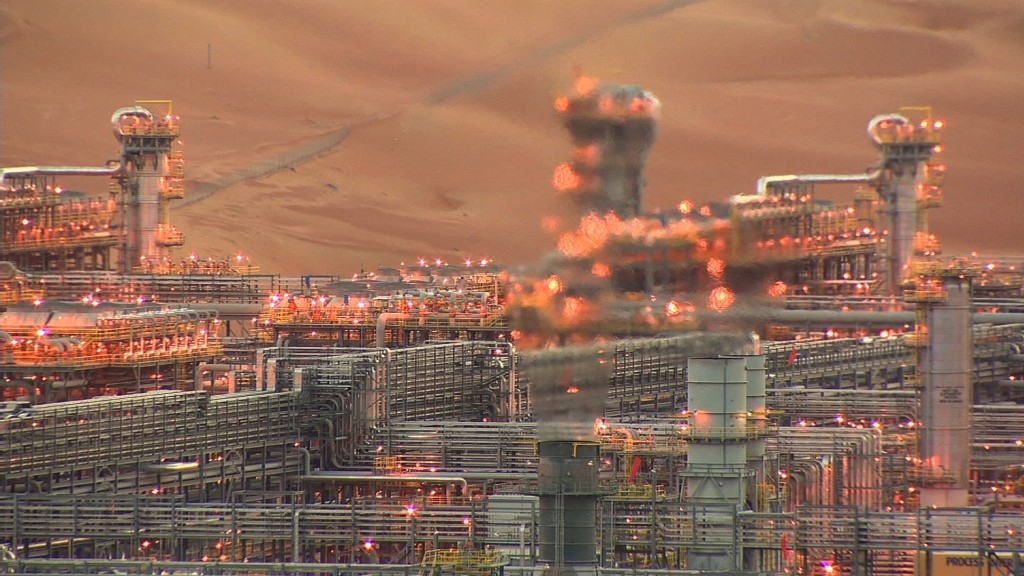The Trump Administration And Cheap Oil: Implications For The Energy Industry

Table of Contents
Deregulation and Increased Domestic Oil Production
The Trump administration's approach to energy policy centered heavily on deregulation, aiming to boost domestic oil production and create economic opportunities. This strategy had a profound impact on the availability of cheap oil, largely due to increased production, but also sparked significant debate regarding environmental concerns.
Easing Environmental Regulations
Easing environmental regulations, particularly those affecting drilling and fracking, was a cornerstone of the administration's energy policy. This resulted in:
- Reduced permitting times for drilling projects: Streamlined processes expedited the approval of new oil and gas projects, leading to quicker production increases.
- Weakening of environmental impact assessments: Less stringent assessments potentially minimized the scrutiny of environmental risks associated with drilling and fracking activities.
- Impact on methane emissions and water contamination concerns: Critics argued that relaxed regulations increased the risks of methane emissions, a potent greenhouse gas, and water contamination from fracking operations. These environmental impacts became a key point of contention in the debate surrounding cheap oil and its production methods.
Impact on Shale Oil Boom
The deregulation significantly contributed to a surge in shale oil production. This boom was fueled by:
- Increased investment in shale oil exploration and extraction: Companies were more willing to invest in shale oil projects given the perceived reduced regulatory hurdles and potential for higher profits.
- Technological advancements in fracking techniques: Improvements in fracking technology made shale oil extraction more efficient and cost-effective, further contributing to the production boom.
- Job creation in the shale oil industry: The increased activity in the shale oil sector resulted in significant job creation, boosting economic activity in regions with significant shale oil reserves. However, the long-term job security in this sector remains a topic of discussion.
International Relations and Oil Prices
The Trump administration's foreign policy also played a significant role in shaping global oil prices and the energy industry's landscape.
Withdrawal from the Paris Agreement
The US withdrawal from the Paris Agreement on climate change sent ripples through the global energy market. This decision:
- Reduced pressure on transitioning to renewable energy sources: The lack of US commitment to climate goals weakened international efforts to curb fossil fuel consumption and incentivize a shift towards renewable energy.
- Potential impact on international cooperation on climate change policies: The withdrawal strained relationships with international partners and hampered collaborative efforts to address climate change and its implications for energy consumption.
- Shift in global energy market dynamics: The withdrawal potentially reinforced the dominance of fossil fuels in the global energy market, at least in the short term.
Relationship with OPEC
The Trump administration's relationship with OPEC (Organization of the Petroleum Exporting Countries) significantly influenced global oil supply and pricing. The administration's actions included:
- Negotiations and agreements with OPEC nations: The administration engaged in direct negotiations with OPEC members to manage oil production and stabilize prices.
- Impact on OPEC's production quotas: The administration's efforts sometimes led to adjustments in OPEC's production quotas, impacting the global oil supply and influencing prices.
- Strategic implications for US energy security: The administration's interactions with OPEC had strategic implications for US energy security and its dependence on foreign oil sources.
Impact on Renewable Energy
While the Trump administration prioritized fossil fuels, its policies also impacted the renewable energy sector.
Funding and Policy Shifts
The administration's focus on fossil fuels led to notable shifts in renewable energy policy and funding:
- Reduced funding for renewable energy research and development: Budget cuts impacted government-funded research into renewable energy technologies, potentially hindering innovation and advancements.
- Changes in tax incentives and subsidies for renewable energy projects: Reductions or eliminations of tax incentives and subsidies made renewable energy projects less attractive for investors.
- The effect on the competitiveness of renewable energy compared to fossil fuels: These policy changes tilted the playing field in favor of fossil fuels, impacting the competitiveness of renewable energy sources in the energy market.
Long-term Implications
The Trump administration's energy policies have long-term implications for the US energy sector and its global role:
- Potential challenges in transitioning to a cleaner energy future: The emphasis on fossil fuels created challenges for the transition to a cleaner energy future, potentially delaying efforts to mitigate climate change.
- Implications for energy security and independence: The focus on domestic oil production aimed to enhance energy independence, but also raised concerns about environmental sustainability.
- Impact on US global leadership on climate change issues: The withdrawal from the Paris Agreement and other policy decisions weakened US leadership on international efforts to address climate change.
Conclusion
The Trump administration's policies created a complex and lasting impact on the availability of cheap oil and the energy industry. Deregulation spurred a shale oil boom, contributing to lower global prices, but simultaneously raised environmental concerns. Changes in international relations and a shift away from renewable energy initiatives created both short-term economic gains and long-term challenges for the US energy landscape. Understanding these multifaceted consequences is essential for informed discussions about future energy policy. To further explore the complex interplay between policy and energy markets, continue your research into the impact of the Trump administration's policies on cheap oil and the energy industry.

Featured Posts
-
 Chantal Ladesou Et Gerard Hernandez Une Relation Professionnelle Durable Dans Scenes De Menages
May 12, 2025
Chantal Ladesou Et Gerard Hernandez Une Relation Professionnelle Durable Dans Scenes De Menages
May 12, 2025 -
 Post Roe America How Over The Counter Birth Control Impacts Womens Health
May 12, 2025
Post Roe America How Over The Counter Birth Control Impacts Womens Health
May 12, 2025 -
 Henry Golding And The Crazy Rich Asians Tv Adaptation What To Expect
May 12, 2025
Henry Golding And The Crazy Rich Asians Tv Adaptation What To Expect
May 12, 2025 -
 L Humoriste Eric Antoine De Nouveau En Couple Decouvrez Sa Nouvelle Compagne
May 12, 2025
L Humoriste Eric Antoine De Nouveau En Couple Decouvrez Sa Nouvelle Compagne
May 12, 2025 -
 Cati Bani A Castigat Sylvester Stallone Din Rocky
May 12, 2025
Cati Bani A Castigat Sylvester Stallone Din Rocky
May 12, 2025
